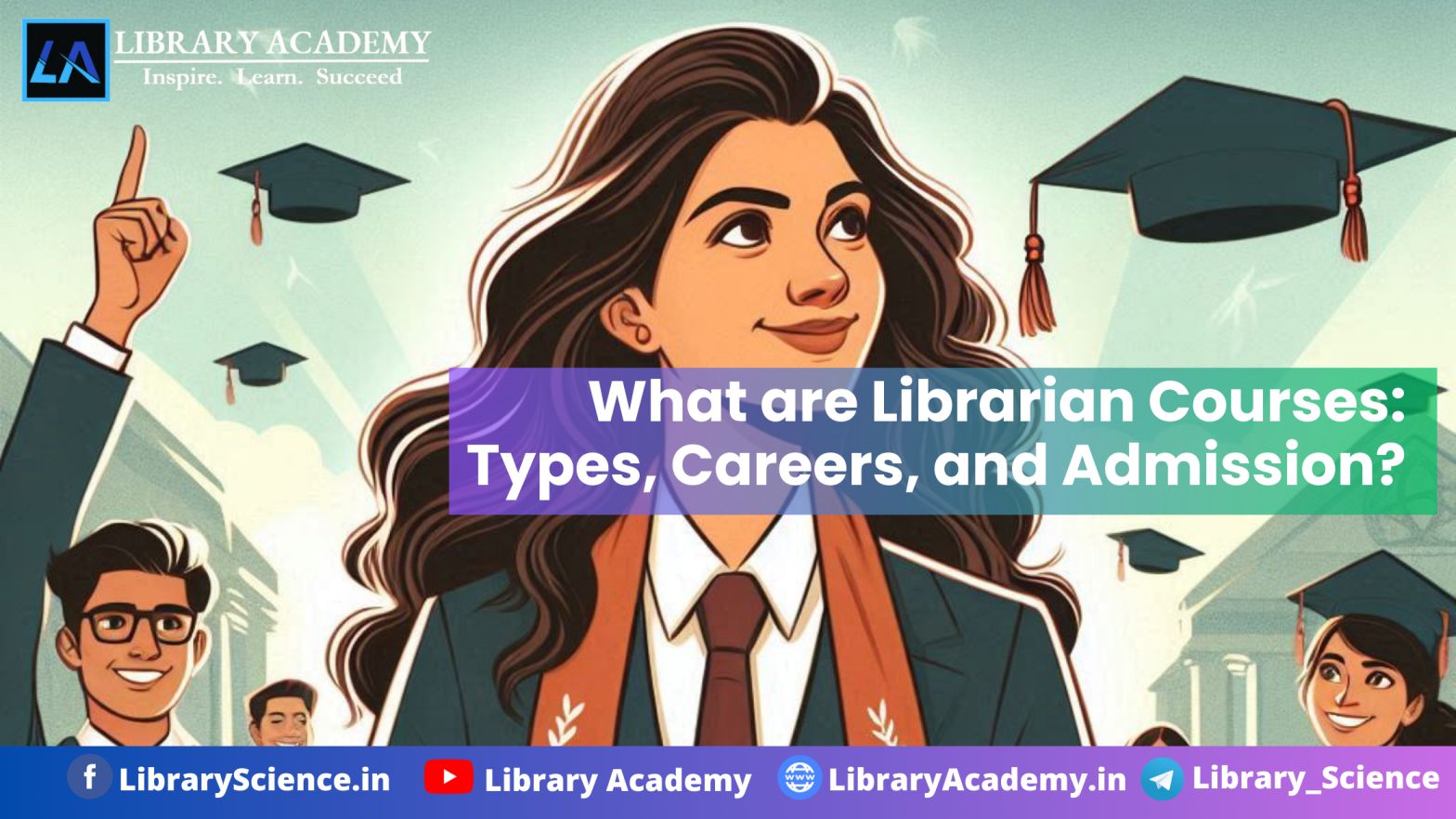What are Librarian Courses: “Librarian courses” refer to educational programs or degrees in the field of library and information science that prepare individuals to work as librarians, assistant librarians, library assistants, or in related roles in libraries and information centers. Librarian courses provide students with the knowledge and skills to manage library resources, assist patrons/users, and organize information effectively.
Here’s an overview of librarian courses and how to pursue them:
Types of Librarian Courses
1. Bachelor’s Degree in Library and Information Science (BLIS or B.Lib.Sc.)
Duration: 1 year (after graduation) or 3 years (as an undergraduate course).
Focus: Basic principles of library science, cataloging, classification, information technology in libraries, and management.
Eligibility: 10+2 or equivalent; for the 1-year program, a Bachelor’s degree is required.
2. Master’s Degree in Library and Information Science (MLIS or M.Lib.Sc)
Duration: 1-2 years.
Focus: Advanced topics in information science, digital libraries, research methods, knowledge management, and specialized librarianship (e.g., academic, public, and special libraries).
Eligibility: Bachelor’s degree in Library Science or equivalent.
3. Ph.D. in Library and Information Science
Duration: 3-5 years.
Focus: In-depth research in LIS, thesis work, advanced study in information management, and teaching methodologies.
Eligibility: Master’s degree in Library and Information Science.
4. Diploma in Library Science (DLISc) and Certificate in Library Science (CLISc) Courses
Focus: Specific areas like digital libraries, library automation, archival management, or library technology.
Duration: Diploma courses have one year and Certification courses is 6 month duration.
Eligibility: Varies depending on the course; usually a basic understanding of library science is required.
5. Online Courses and MOOCs: Join Librarian Courses on Library Academy
Platforms: Coursera, edX, Swayam, and others offer courses in Library Science, digital libraries, and related areas.
Focus: Flexible learning on specific topics, including digital librarianship, data curation, and information management.
Eligibility: Typically open to all, with varying levels of prerequisite knowledge.
Steps to Pursue Librarian Courses
- Choose Your Pathway:
- Decide whether you want to start with a Bachelor’s, Master’s, or specialized diploma based on your current educational qualifications.
- Select the Right Institution:
- Look for universities or colleges with accredited Library Science programs. Consider factors like faculty, infrastructure, and placement records.
- Apply for the Course:
- Check the admission criteria and deadlines. Some programs may require entrance exams, interviews, or work experience.
- Complete the Curriculum:
- Engage in both theoretical and practical training. Many programs include internships or fieldwork in libraries.
- Obtain Necessary Certifications:
- For certain positions, additional certifications (e.g., UGC NET for teaching roles) might be required.
- Consider Further Specialization:
- After gaining some experience, you may choose to specialize in areas like archival science, digital librarianship, or library technology.
- Stay Updated with Continuing Education:
- The field of librarianship is evolving, especially with digital and technological advancements. Participating in workshops, conferences, and online courses helps you stay current.
Learn More: Best University and College for Librarian Courses in India
Career Opportunities
- Public Librarian
- Academic Librarian
- School Librarian
- Special Librarian (e.g., corporate, legal, medical libraries)
- Digital Librarian
- Archivist
- Information Manager
Library Academy” might refer to a specific educational platform, institution, or initiative offering librarian courses, but since there isn’t a widely recognized entity by that exact name, I’ll provide a general overview of what a “Library Academy” could offer in terms of librarian courses.
Download Library Academy App: Join Librarian Courses
 Subscribe YouTube Channel
Subscribe YouTube Channel

